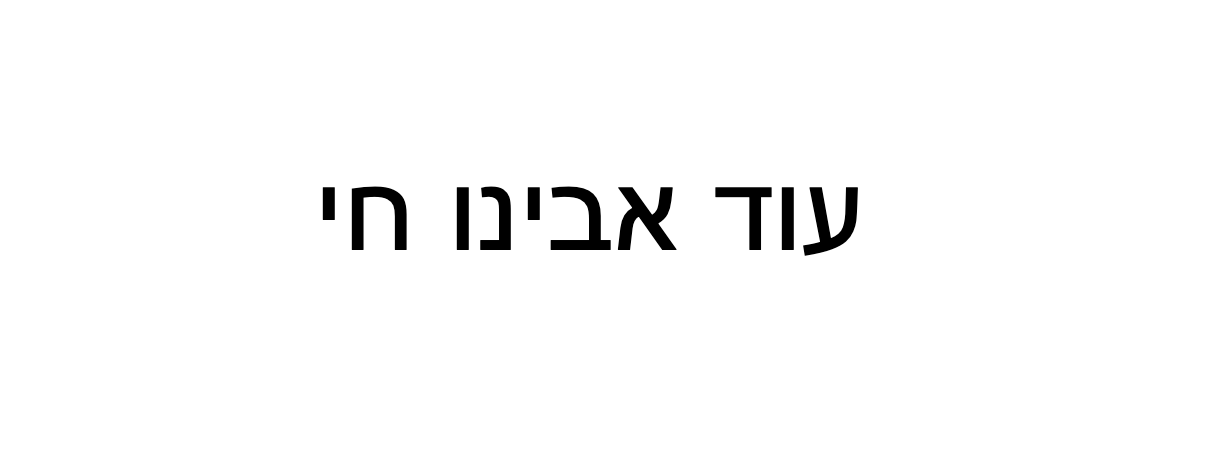 Rabbi David Etengoff Dedicated to the sacred memories of my mother, Miriam Tovah bat Aharon HaKohane, father-in-law, Levi ben Yitzhak, sister, Shulamit bat Menachem, sister-in-law, Ruchama Rivka Sondra bat Yechiel, Chana bat Shmuel, Yehonatan Binyamin ben Mordechai Meir Halevi, Tikvah bat Rivka Perel, Gittel Malka bat Moshe, Alexander Leib ben Benyamin Yosef, the Kedoshim of Har Nof, Pittsburgh, and Jersey City, the refuah shlaimah of Mordechai HaLevi ben Miriam Tovah, and the health and safety of our brothers and sisters in Israel and around the world. The passing of Ya’akov Avinu is the most poignant theme in our parasha: “And Ya’akov concluded commanding his sons, and he drew his legs [up] into the bed and expired and was brought unto his people. Yosef fell on his father's face, and he wept over him and kissed him.” (Sefer Bereishit 49:33-50:1, all Tanach and Rashi translations, The Judaica Press Complete Tanach with my emendations) In his Commentary on the Torah on this verse, Rashi (1040-1105) states the following: “But no mention is made of death in his regard, and our Rabbis of blessed memory said: ‘Our father Ya’akov did not die.’” This gloss is based on the following passage from Talmud Bavli, Ta’anit 5b: After they had eaten, Rabbi Yitzḥak said to Rav Naḥman that Rabbi Yoḥanan said as follows: “Ya’akov Avinu lo mate--Our patriarch Ya’akov did not die.” Rav Naḥman asked him in surprise: “And was it for naught that the eulogizers eulogized him, and the embalmers embalmed him, and the buriers buried him?” Rabbi Yitzḥak replied to Rav Naḥman: “I am interpreting a verse, as it is stated: ‘Therefore do not fear, Ya’akov My servant, says Hashem, neither be dismayed, Yisrael, for I will save you from afar, and your descendants from the land of their captivity.’” (Sefer Yirmiyahu 30:10) This verse juxtaposes Ya’akov to his descendants: Just as his descendants are alive when redeemed, so too, Ya’akov himself is alive. (Translation, Koren-Davidson Talmud, Rav Adin Steinsaltz zatzal editor, with my emendations) In his Commentary on the Talmud, Rashi elaborates on the statement, Ya’akov Avinu lo mate and maintains: “[That is,] he lives forever.” Moreover, “when the Egyptian embalmers embalmed him, they did this because they [erroneously] thought he was dead.” As such, Rashi suggests that Rabbi Yitzḥak’s interpretation of the pasuk in Sefer Yirmiyahu, “just as his descendants are alive when redeemed, so too, Ya’akov himself is alive,” should be taken at face value. (Rashi translations and brackets my own) A markedly different approach to understanding our talmudic passage is found in Perush HaAggadot by Rabbi Shlomo ben Avraham ibn Aderet (the Rashba, 1235-1310): How is it remotely possible to suggest that Rabbi Yoḥanan or Rabbi Yitzḥak based their understanding of what happened to Ya’akov Avinu more upon a midrashic interpretation of the verse in Sefer Yirmiyahu, with its hidden hints in the text, rather than upon explicit pasukim in the Torah that clearly explain that Ya’akov died, was eulogized, was embalmed, and was buried? Without a doubt, this is something that logic eschews and repudiates. (This and the following translations my own) Rejecting Rashi’s gloss based on straightforward textual analysis, the Rashba instead suggests: Rabbi Yitzḥak responded to him (Rav Naḥman) not in regard to the death of Ya’akov’s physical body, but rather in reference to [his ongoing spiritual presence among the Jewish people. As such, Rabbi Yitzḥak states]: “But, I am giving a midrashic interpretation to this text [in Yirmiyahu], and concluding, just as his (Ya’akov’s) descendants are alive [physically], so, too, is he alive [spiritually].” At that point, Rav Naḥman understood the allusions inherent in the essential principle Rabbi Yitzḥak was attempting to convey, and he was silent. In my estimation, the Rashba’s interpretation of Rabbi Yitzḥak’s drasha is congruent with a well-known pasuk in Parashat Vayigash: “And Yosef said to his brothers, ‘I am Yosef. Is my father still alive?’” (Sefer Bereishit 45:3) It is impossible to explain Yosef’s “question” as a question in the literal sense. After all, in the verses leading up to this pasuk in Parashat Vayigash alone, Yehudah refers to av (father), aviv (his father), avi (my father) and avinu (our father) no less than 14 times! I believe, therefore, that Yosef is speaking b’ruach hakodesh (with Hashem’s Divine Spirit resting upon him) and proclaiming to his brothers that no matter what they have done, no matter how great the emotional pain they had inflicted upon Ya’akov through their errant actions: My father is alive, and will be so forevermore! (See the Abarbanel’s Commentary on the Torah, Sefer Bereishit 41:1, for other examples of Yosef acting b’ruach hakodesh) Today, anti-Semitism has once again has reared its ugly head throughout the world. As a result, there is no better time to focus on the spiritual lesson contained in Rabbi Yitzḥak’s drasha, and remember the stirring phrase, “Ya’akov Avinu lo mate.” As Rabbi Shlomo Carlebach zatzal taught us all, “Am Yisrael chai! Am Yisrael chai, od Avinu chai—The Jewish people live, the Jewish people live, and our Father [Ya’akov] continues to live!” Shabbat Shalom Past drashot may be found at my blog-website: http://reparashathashavuah.org. Please contact me at [email protected] to be added to my weekly email list. *** My audio shiurim on the topics of Tefilah and Tanach may be found at: http://tinyurl.com/8hsdpyd *** I have posted 164 of Rabbi Soloveitchik’s English language audio shiurim (MP3 format) spanning the years 1958-1984. Please click on the highlighted link: The Rav
0 Comments
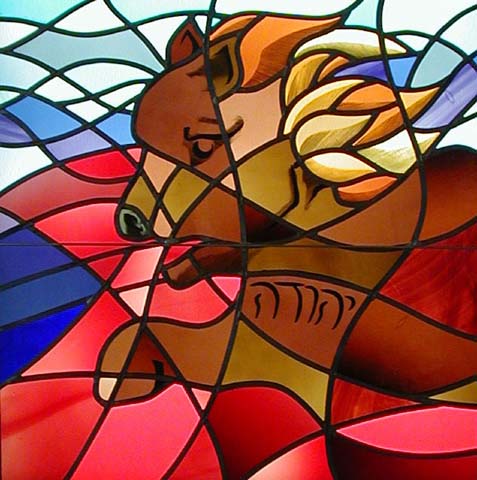 Rabbi David Etengoff Dedicated to the sacred memories of my mother, Miriam Tovah bat Aharon HaKohane, father-in-law, Levi ben Yitzhak, sister, Shulamit bat Menachem, sister-in-law, Ruchama Rivka Sondra bat Yechiel, Chana bat Shmuel, Yehonatan Binyamin ben Mordechai Meir Halevi, Tikvah bat Rivka Perel, Gittel Malka bat Moshe, Alexander Leib ben Benyamin Yosef, the Kedoshim of Har Nof, Pittsburgh, and Jersey City, the refuah shlaimah of Mordechai HaLevi ben Miriam Tovah, and the health and safety of our brothers and sisters in Israel and around the world. The events in Parashat Vayigash represent a crucial moment in the history of the entire Jewish people. It begins with the celebrated phrase, “vayigash aluv Yehudah—And Yehudah drew near unto him.” (Sefer Bereishit 44:18) These words initiate the celebrated dialogue between Yehudah and Yosef, the latter in the guise of Mishneh l’Melech (second-in-command of Egypt). A careful reading of the subsequent pasukim leads us to ask why the other brothers did not participate in this discussion, especially in light of its singular import. This point was addressed by our Sages in Midrash Bereishit Rabbah: “They said [the other brothers to one another]: ‘Kings are steeped in controversy and debating one another, therefore, what relevance does it have for us? Let the king contend with the king!’” (Vilna edition, 93:2, translation my own) In his posthumous work, Chumash Mesoras HaRav, my rebbe and mentor, Rabbi Joseph B. Soloveitchik zatzal (1903-1993), known as the “Rav” by his followers and disciples, analyzes this statement in the following manner: Intuitively, they [the brothers] felt that the controversy transcended the issue of their young brother Benjamin; it involved Jewish historical destiny. Who should be king over Israel, Joseph or Judah? From whom will the King Messiah descend, Joseph or Judah? Joseph wanted to be king, to combine political and economic power with spiritual leadership. He dreamt of sheaths, and he also dreamt of stars. Judah did not dream, yet there was something in his personality which commanded respect and obedience… It was he who had a powerful personality which radiated authority. Judah was a lion. (Page 328, brackets my own) In sum, while on the surface, the disputation between Yosef and Yehudah centered on Benyamin’s future, in reality, Jewish historical destiny was at stake: From whom would the future kings of klal Yisrael descend, and from which shavet would mashiach ultimately come? As the Tanach attests, Hashem decided in favor of Yehudah, the lion, rather than Yosef HaTzaddik, the spiritual dreamer. Midrash Tanchuma on Parashat Vayera (Siman 8) offers a very different approach to understanding the phrase, “vayigash aluv Yehudah.” It suggests when the Hebrew letters that comprise vayigash are vocalized in this manner, it refers to the act of prayer: “v’ain vayigash elah tefilah—there is no use of the term ‘vayigash’ that does not refer to prayer.” As such, vayigash aluv Yehudah refers to Yehudah praying to the Holy One blessed be He for guidance in his upcoming confrontation with Yosef; that is, “aluv,” refers to Hashem rather than to Yosef. The midrash cites two additional examples in Tanach that strongly support the idea of vayigash referring to tefilah: And Avraham approached and said--vayigash Avraham vayomar, “Will You even destroy the righteous with the wicked?” (Sefer Bereishit 18:23) And it was when the evening sacrifice was offered that Elijah the prophet came near and said--va’yehi b’a’lot hamincha vayigash Eliyahu hanvi vayomar, “Hashem, the G-d of Avraham, Yitzchak and Yisrael, today let it be known that You are G-d in Israel and that I am Your servant, and at Your word have I done all these things.” (Sefer Melachim I:18:36, these and the following translation, The Judaica Press Complete Tanach) In my estimation, this interpretation of vayigash aluv Yehudah teaches a fundamental lesson regarding the very essence of tefilah: In its ideal form, prayer stems from an overwhelming desire to draw near to the Almighty, to encounter Him and bask in the light of His holy presence. For when we do, Hashem draws close to us, as well. As we find in the uplifting words of Ashrei: “Karov Hashem l’kol koruv, l’kol asher yikrau’hu b’emet—Hashem is near to all who call Him, to all who call Him with sincerity.” (Sefer Tehillim 145:18) V’chane yihi ratzon. Shabbat Shalom Past drashot may be found at my blog-website: http://reparashathashavuah.org. Please contact me at [email protected] to be added to my weekly email list. *** My audio shiurim on the topics of Tefilah and Tanach may be found at: http://tinyurl.com/8hsdpyd *** I have posted 164 of Rabbi Soloveitchik’s English language audio shiurim (MP3 format) spanning the years 1958-1984. Please click on the highlighted link: The Rav 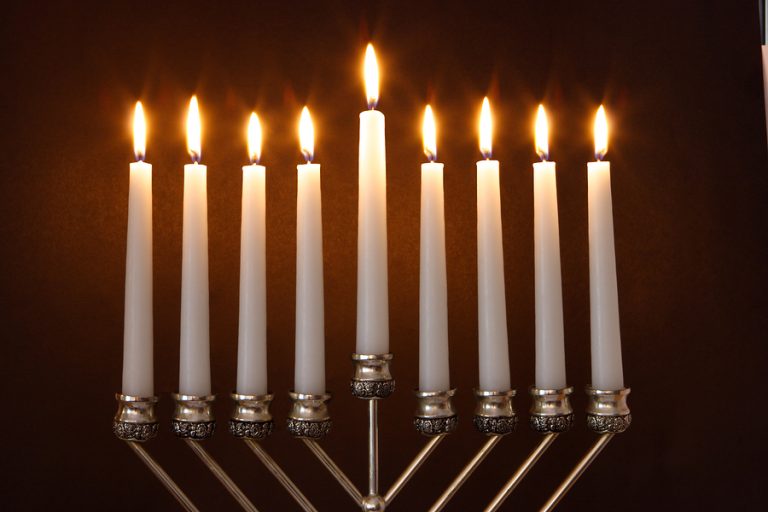 Rabbi David Etengoff Dedicated to the sacred memories of my mother, Miriam Tovah bat Aharon HaKohane, father-in-law, Levi ben Yitzhak, sister, Shulamit bat Menachem, sister-in-law, Ruchama Rivka Sondra bat Yechiel, Chana bat Shmuel, Yehonatan Binyamin ben Mordechai Meir Halevi, Tikvah bat Rivka Perel, Gittel Malka bat Moshe, Alexander Leib ben Benyamin Yosef, the Kedoshim of Har Nof, Pittsburgh, and Jersey City, the refuah shlaimah of Mordechai HaLevi ben Miriam Tovah, and the health and safety of our brothers and sisters in Israel and around the world. When we focus on our Sages’ presentation of Purim and Hanukkah, we discover the former has an entire tractate of the Talmud Bavli that discusses its halachot, whereas Hanukkah and its laws are found in a few pages in Masechet Shabbat. Consequently, the following paragraph takes on particular import: What is Hanukkah (mai Hanukkah), and why are lights kindled on Hanukkah? The Gemara answers: [The Sages taught in Megillat Ta’anit:] On the twenty-fifth of Kislev, the days of Hanukkah are eight. One may not eulogize on them, and one may not fast on them. [What is the reason?] When the Greeks entered the Sanctuary, they defiled all the oils that were in the Sanctuary by touching them. And when the Hasmonean monarchy overcame them and emerged victorious over them, they searched and found only one cruse of oil that was placed with the seal of the High Priest, undisturbed by the Greeks. And there was sufficient oil there [to light the Menorah] for only one day. A miracle occurred and they lit [the Menorah] from it eight days. The next year the Sages instituted those days and made them holidays with recitation of Hallel and special thanksgiving in prayer and blessings. (Talmud Bavli, Shabbat 21b, translation, The Koren-William Davidson Talmud, Rabbi Adin Steinsaltz zatzal, editor) In his Commentary on the Talmud, Rashi (1040-1105) suggests the interrogative phrase, “mai Hanukkah,” should be interpreted as “based upon which miracle was Hanukkah established?” rather than “what is Hanukkah?” in the literal sense of the words. (Shabbat 21b) In so doing, he helps us understand the reason this passage in Masechet Shabbat comprises the functional equivalent of a mini-Hanukkah Haggadah, since without it, we would be unable to determine the primary miracle of Hanukkah. Having identified the key miracle of Hanukkah, the next logical question to ask is “why is it named, ‘Hanukkah,’ rather than something like, ‘Nase Pach Shemen (the Miracle of the Cruse of Oil)?’” After all, if it is really about, the “one cruse of oil that was placed with the seal of the High Priest, undisturbed by the Greeks… [and the] miracle occurred [… so that] they lit [the Menorah] from it eight days,” then Nase Pach Shemen seems to be a more appropriate name. Fortunately, there are classic sources that answer just this question. In his Chidushei Aggadot on Masechet Shabbat21b, Rav Shmuel Eidels (Maharsha, 1555 – 1631), basing himself on Mishna Middot 1:6, maintains that Hanukkah received this name because the Maccabees had hidden away the stones from the Mizbeach (Altar) that the Syrian-Greeks had desecrated through their idol worship. As such, they needed to construct an entirely new Mizbeach and reconsecrate it, a process known as chanukat haMizbeach. The etymological relationship between the terms chanukat haMizbeach and Hanukkah is clear and, for the Maharsha, constitutes the basis for the name Hanukkah. In his work, Machzor Vitry, Rashi’s student, Rav Simcha ben Shmuel of Vitry, France (d. 1105) offers two responses: “The name Hanukkah [in the original Hebrew] may be read as ‘chanu kaf hay b’Kislev—they [the Maccabees] ceased fighting on the 25th of Kislev.’” His second answer, focuses, as well, on the Hebrew letters in Hanukkah and posits that, “chane b’ kaf hay Kislev— [the Maccabees obtained grace from the Almighty] on the 25th of Kislev.” Therefore, according to Rav Simcha ben Shmuel, this chag is named Hanukkah since its very letters portray major historical and spiritual aspects of the festival. The second answer of the Machzor Vitry, “chane b’ kaf hay Kislev,” is reminiscent of an idea attributed to the Vilna Gaon (Rav Eliyahu ben Shlomo Zalman, 1720-1797) in which he notes that there is a remez (hint) to Hanukkah in the Torah itself: If someone counts from the first word of the Torah until the 25th word of the Torah, they will find that the 25th word is none other than, “ohr—light,” a hint to the light that we are blessed with on Hanukkah, on the 25th of Kislev. Moreover, building upon this thought, I believe we can discover a strong proof for the connection between light (ohr) and grace (chane) in the second verse of Birkat Kohanim: “May Hashem make His presence enlighten you and grant you grace.” (Sefer Bamidbar 6:25, translation, Rav Aryeh Kaplan) With the Almighty’s help, may this bracha be realized this Hanukkah, and every day of the year, for the entire Jewish people. V’chane yihi ratzon. Shabbat Shalom Past drashot may be found at my blog-website: http://reparashathashavuah.org. Please contact me at [email protected] to be added to my weekly email list. *** My audio shiurim on the topics of Tefilah and Tanach may be found at: http://tinyurl.com/8hsdpyd *** I have posted 164 of Rabbi Soloveitchik’s English language audio shiurim (MP3 format) spanning the years 1958-1984. Please click on the highlighted link: The Rav 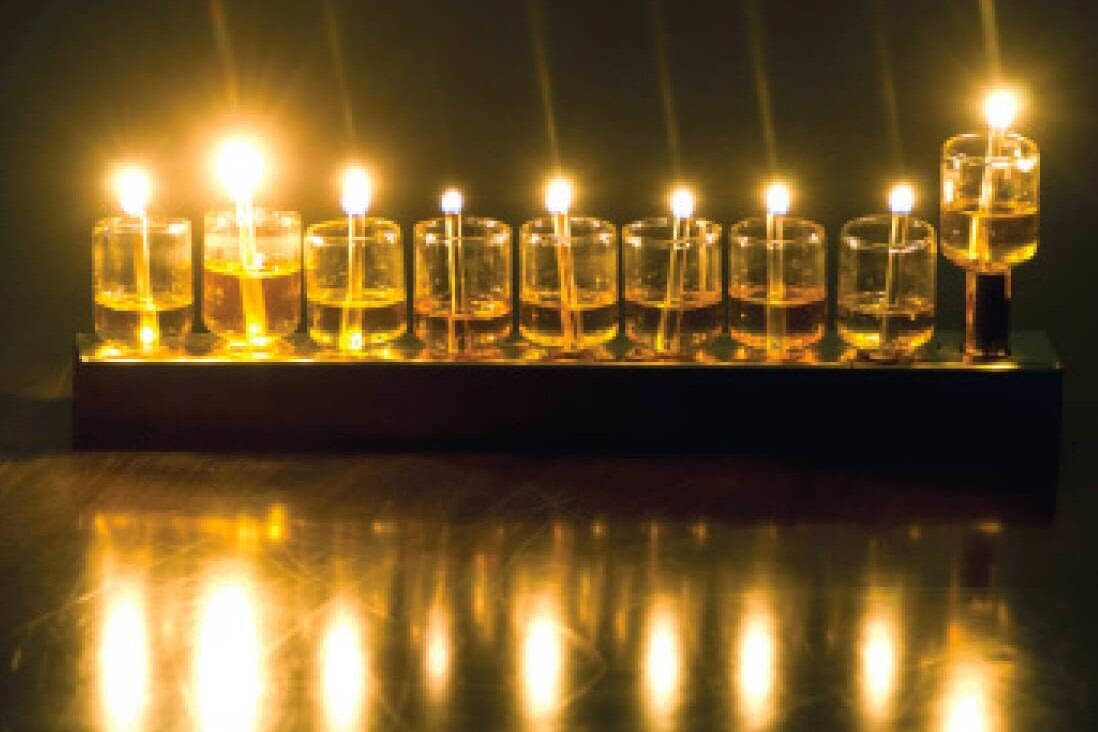 Rabbi David Etengoff Dedicated to the sacred memories of my mother, Miriam Tovah bat Aharon HaKohane, father-in-law, Levi ben Yitzhak, sister, Shulamit bat Menachem, sister-in-law, Ruchama Rivka Sondra bat Yechiel, Chana bat Shmuel, Yehonatan Binyamin ben Mordechai Meir Halevi, Tikvah bat Rivka Perel, Gittel Malka bat Moshe, Alexander Leib ben Benyamin Yosef, the Kedoshim of Har Nof, Pittsburgh, and Jersey City, the refuah shlaimah of Mordechai HaLevi ben Miriam Tovah, and the health and safety of our brothers and sisters in Israel and around the world. One of the many fascinating aphorisms in the holy Zohar is found in Parashat Naso, 134: “Everything depends upon mazal—even a Sefer Torah that is in the Aron Kodesh.” (Translation my own). If we apply this maxim to Hanukkah, it emerges as the luckiest of all chagim on the Jewish calendar, for it has been consistently observed by every religious and political sector of our people. This degree of Hanukkah’s popularity leads us to the Talmud’s classic question: What is Hanukkah, and why are lights kindled on Hanukkah? The Gemara answers: [The Sages taught in Megillat Ta’anit:] On the twenty-fifth of Kislev, the days of Hanukkah are eight. One may not eulogize on them and one may not fast on them. [What is the reason?] When the Greeks entered the Sanctuary they defiled all the oils that were in the Sanctuary by touching them. And when the Hasmonean monarchy overcame them and emerged victorious over them, they searched and found only one cruse of oil that was placed with the seal of the High Priest, undisturbed by the Greeks. And there was sufficient oil there [to light the Menorah] for only one day. A miracle occurred and they lit [the Menorah] from it eight days. The next year the Sages instituted those days and made them holidays with recitation of Hallel and special thanksgiving in prayer and blessings. (Talmud Bavli, Shabbat 21b, translation, The Koren-William Davidson Talmud, Rabbi Adin Steinsaltz zatzal, editor) In his Mishneh Torah, Hilchot Megillah v’Hanukkah 3:1, the Rambam (Maimonides, 1135-1204) formulates his answer to the Talmud’s question in this manner: In [the era of] the Second Temple, the Greek kingdom issued decrees against the Jewish people, [attempting to] nullify their faith and refusing to allow them to observe the Torah and its commandments. They extended their hands against their property and their daughters; they entered the Sanctuary, wrought havoc within, and made the sacraments impure. The Jews suffered great difficulties from them, for they oppressed them greatly until the G-d of our ancestors had mercy upon them, delivered them from their hand, and saved them. The sons of the Hasmoneans, the High Priests, overcame [them], slew them, and saved the Jews from their hand… When the Jews overcame their enemies and destroyed them, they entered the Sanctuary; this was on the twenty-fifth of Kislev. They could not find any pure oil in the Sanctuary, with the exception of a single cruse. It contained enough oil to burn for merely one day. They lit the arrangement of candles from it for eight days until they could crush olives and produce pure oil. These classic sources emphasize the instrumental role of the Chashmonaim in the salvation of our people, an idea that is given powerful voice by my rebbe and mentor, Rabbi Joseph B. Soloveitchik zatzal (1903-1993), known as the “Rav” by his followers and disciples: … Hanukkah represent[s] man’s active involvement… God chose the Maccabees not as onlookers but as actors. He demanded from them sacrificial, heroic action. He told them to plan the strategy and execute it. Man is the fulfiller of G-d’s will. Hence, when triumph was achieved, G-d willed man to celebrate a day of love and sympathy, a day of sharing and togetherness. Hanukkah revolve[s] around the merger of the individual with the community, promoting an open, sympathetic existence. (This, and the following quotes of the Rav, are from Days of Deliverance: Essays on Purim and Hanukkah, Eli D. Clark, Joel B. Wolowelsky and Reuven Ziegler editors, pages 121-124, brackets my own) In sum, the Maccabees were the active agents in the salvation of the Jewish people. They engaged in “sacrificial heroic action” based upon their personally conceived strategies and chosen modes of deployment. In this way, they fulfilled Hashem’s plan, and “… when triumph was achieved, God willed man to celebrate a day of love and sympathy, a day of sharing and togetherness.” Why were the Chashmonaim given such a prominent role and “top-billing” in the redemption of our nation from the domination of the Syrian-Greek armies? To this the Rav replies: We learn from this that when the fight is spiritual, God invites the Jew to participate. When spiritual survival is at stake, man must take the initiative. Even though man is under the guidance of the Almighty, man takes the initiative, and therefore his role is recorded… Antiochus was interested in destroying the Jews spiritually. When the menace is of a spiritual nature, then the initiative belongs to man. Man engages in the struggle for spiritual survival. For this reason, the Hasmoneans took the initiative, and we remember their efforts when we commemorate their victory on Hanukkah. The spiritual nature of the Hanukkah victory is seen, as well, in the following section from the Al HaNissim tefilah for Hanukkah: You delivered the strong into the hands of the weak, the many into the hands of the few, the impure into the hands of the pure, the wicked into the hands of the righteous, and the wanton into the hands of the diligent students of Your Torah…Thereafter Your children came into the shrine of Your house, cleansed Your Temple, purified Your sanctuary, kindled the lights in the courts of Your holiness… As we have seen, the Rambam describes the primary goal of the Syrian-Greek overlords as having “…issued decrees against the Jewish people, [attempting to] nullify their faith and refusing to allow them to observe the Torah and its commandments.” In short, their goals were to destroy our emunah (faith) and bitachon (active trust and dependency) in the Almighty and prevent us from observing the mitzvot. Sadly, many other nations have pursued this path, as our Chachamim taught us so long ago in the Haggadah: “B’kol dor v’dor omdim aleinu l’kaloteinu—in each and every generation there are those who rise against to destroy us.” Yet, we must ever remember the remaining part of this statement: “v’HaKadosh Baruch Hu matzileinu m’yadam--and the Holy One blessed be He saves us from their hand.” V’chane yihi ratzon. Shabbat Shalom Past drashot may be found at my blog-website: http://reparashathashavuah.org. Please contact me at [email protected] to be added to my weekly email list. *** My audio shiurim on the topics of Tefilah and Tanach may be found at: http://tinyurl.com/8hsdpyd *** I have posted 164 of Rabbi Soloveitchik’s English language audio shiurim (MP3 format) spanning the years 1958-1984. Please click on the highlighted link: The Rav 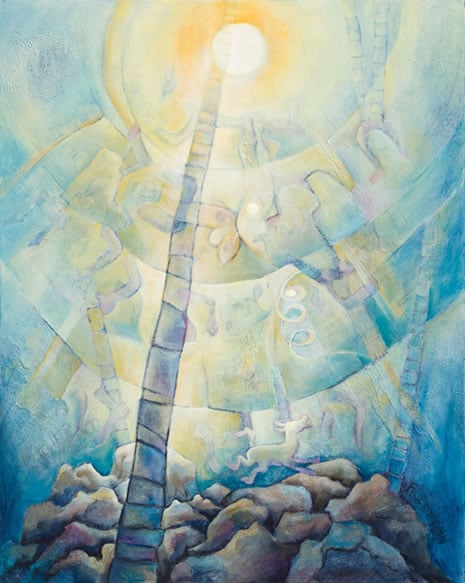 Rabbi David Etengoff Dedicated to the sacred memories of my mother, Miriam Tovah bat Aharon HaKohane, father-in-law, Levi ben Yitzhak, sister, Shulamit bat Menachem, sister-in-law, Ruchama Rivka Sondra bat Yechiel, Chana bat Shmuel, Yehonatan Binyamin ben Mordechai Meir Halevi, Tikvah bat Rivka Perel, Gittel Malka bat Moshe, Alexander Leib ben Benyamin Yosef, the Kedoshim of Har Nof, Pittsburgh, and Jersey City, the refuah shlaimah of Mordechai HaLevi ben Miriam Tovah, and the health and safety of our brothers and sisters in Israel and around the world. One of the fascinating themes in Parashat Vayishlach is Ya’akov’s wrestling with an anonymous man, as the Torah states: “Vayivater Ya’akov levado (and Ya’akov was alone), and a man wrestled with him until the break of dawn.” (Sefer Bereishit 32:25, this and all Tanach translations, The Judaica Press Complete Tanach, with my emendations) There are three other times in Chamisha Chumshei Torah wherein the word “levado” (alone) is employed in reference to major Biblical figures: And Hashem Elokim said, “It is not good (lo tov) that man (Adam) is levado; I shall make him a helpmate opposite him.” (Sefer Bereishit 2:18) And they set for him (Yosef) levado and for them (Yosef’s brothers) levadom… (Ibid. 43:32) And Moshe levado shall approach Hashem but they shall not approach, and the people shall not ascend with him. (Sefer Shemot 24:2) In the first instance, Adam HaRishon’s aloneness was absolute. He was literally the only person in world. Little wonder, then, that the Almighty described his existential condition as, “lo tov,” the polar opposite of the phrase “ki tov” that we find time and again in reference to Ma’aseh Bereishit (the Creation of the Universe). In my estimation, the Torah’s description of Yosef’s physical distance from his brothers in the banquet hall depicts the state of alienation that existed between them before Yosef revealed himself as their long-lost brother. They were in the same room, yet they remained miles apart from each other. Moreover, Yosef was second in command of Egypt, the greatest world power of the time, while his brothers were but desperate strangers attempting to acquire grain to stave off starvation. A more unequal power dynamic could hardly be found. Yosef was truly levado. The Torah’s statement, “and Moshe levado shall approach Hashem,” to receive the Torah is congruent with the idea that he was different in kind and degree from any prophet who had ever lived or would ever live. As the Rambam writes: What is the difference between Moshe’s prophecy and that of all the other prophets? [Divine insight is bestowed upon] all the [other] prophets in a dream or vision. Moshe, our teacher, would prophesy while standing awake… [Divine insight is bestowed upon] all the [other] prophets through the medium of an angel. Therefore, they perceive only metaphoric imagery and allegories. Moshe, our teacher, [would prophesy] without the medium of an angel… His appreciation of prophecy would not be through metaphor, but through open revelation, appreciating the matter in its fullness. All the [other] prophets are overawed, terrified, and confounded [by the revelations they experience], but Moshe, our teacher, would not [respond in this manner] … just as a person will not be awe-struck from hearing his friend’s words, so, too, Moshe’s mental power was sufficient to comprehend the words of prophecy while he was standing in a composed state. All the [other] prophets cannot prophesy whenever they desire. Moshe, our teacher, was different. Whenever he desired, the holy spirit would envelop him, and prophecy would rest upon him… (Mishneh Torah, Yesodei HaTorah 7:6, translation, Rabbi Eliyahu Touger) As such, in Moshe’s case, levado is far more than a statement of who was allowed to ascend Har Sinai. Instead, it is a description of Moshe’s singular spiritual uniqueness, and consequent aloneness. Just as the term levado is closely tied to these biblical figures, so, too, is it connected to the entire Jewish people: “For from their beginning, I see them as mountain peaks, and I behold them as hills; it is a nation that will dwell levadad(alone) and will not be reckoned among the nations.” (Sefer Bamidbar 23:9). Unlike the other nations of the world, our people, alone, have remained unwavering in devotion to Hashem. As we find in the following selection from the first paragraph of the Aleinu: It is our duty to praise the Master of all, to proclaim the greatness to He who forms all creation. For He did not make us like the nations of other lands and did not make us the same as other families of the Earth. He did not grant us the same portion, and our destiny is not the same as that of all others… Hashem is our G-d, there is none other. Our King is truth, and nothing else exists besides Him. (Translation my own) Shabbat Shalom Past drashot may be found at my blog-website: http://reparashathashavuah.org. Please contact me at [email protected] to be added to my weekly email list. *** My audio shiurim on the topics of Tefilah and Tanach may be found at: http://tinyurl.com/8hsdpyd *** I have posted 164 of Rabbi Soloveitchik’s English language audio shiurim (MP3 format) spanning the years 1958-1984. Please click on the highlighted link: The Rav |
Details
Archives
July 2024
AuthorTalmid of Rabbi Soloveitchik zatzal Categories |
- Blog: Rabbi David Etengoff: Parashat HaShavuah
- Sefer Bereishit 5784&5785
- Sefer Shemot 5784&5785
- Sefer Vayikra 5784&5785
- Sefer Bamidbar 5784 &5785
- Sefer Bereishit 5782&5783
- Sefer Shemot 5782&5783
- Sefer Vayikra 5782&5783
- Sefer Bamidbar 5782&5783
- Sefer Devarim 5782&5783
- Sefer Bereishit 5780& 5781
- Sefer Shemot 5780&5781
- Sefer Vayikra 5780&5781
- Sefer Bamidbar 578&5781
- Sefer Devarim 578&5781
- Sefer Bereishit 5778&5779
- Sefer Shemot 5778&5779
- Sefer Vayikra 5778&5779
- Sefer Bamidbar 5778&5779
- Sefer Devarim 5778&5779
- Sefer Bereishit 5776&5777
- Sefer Bereishit 5774&5775
- Sefer Bereishit 5772&5773
- Sefer Bereishit 5771&5770
- Sefer Shemot 5776&5777
- Sefer Shemot 5774&5775
- Sefer Shemot 5772&5773
- Sefer Shemot 5771&5770
- Sefer Vayikra 5776&5777
- Sefer Vayikra 5774&5775
- Sefer Vayikra 5772&5773
- Sefer Vayikra 5771&5770
- Sefer Bamidbar 5776&5777
- Sefer Bamidbar 5774&5775
- Sefer Bamidbar 5772&5773
- Sefer Bamidbar 5771&5770
- Sefer Devarim 5776&5777
- Sefer Devarim 5774&5775
- Sefer Devarim 5772&5773
- Sefer Devarim 5771&5770
 RSS Feed
RSS Feed
